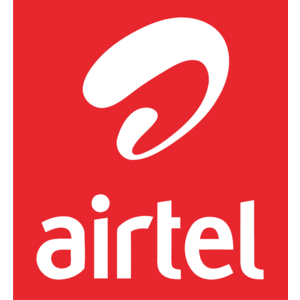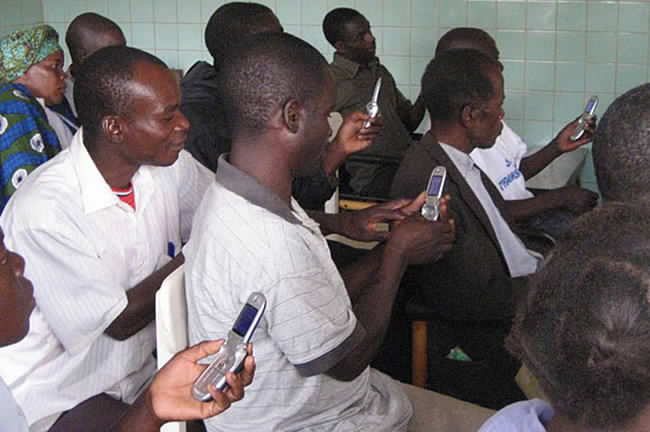Airtel Uganda has received a National Telecom Operator (NTO) license from the regulator, Uganda Communications Commission (UCC), putting it on the same footing with MTN, but also enabling it finally to shake off all the disadvantage it inherited from its days as Uganda’s first licensed private sector operator.
Since its licensing in 1993 and its eventual debut into the market in September 1995, Airtel and its kinfolks before it, Celtel and Zain, suffered a skewed policy disadvantage that many market observers say hamstrung the telco for many years. Airtel is today Uganda’s second biggest operator.
The Infrastructure Magazine can exclusively reveal that over the years, Airtel Uganda has had protracted negotiations with the Government and UCC over its “disabling terms of licence.” It is this engagement that has partly resulted into the overhaul of the country’s telco licensing regime. The other factors that have caused UCC to review its license regime is the evolving technologies not anticipated by the old licensing regime (such as broadband) and the changed national and global telecom policy environment.
Until May this year, UCC still listed Airtel only as PIP PSP. Only UTL and MTN were listed as NTOs. This means that up until then Airtel was in the league of the relatively smaller operators like Africell, Smile Telecom, Tangarine.
This Magazine can now authoritatively reveal that with the new licensing regime, and with Airtel now a proud owner of an NTO license, its hamstrings, that have taken years to completely undo, are finally done, perhaps once and for all.
Announcing their new license as NTO, Airtel Africa said its Ugandan subsidiary made the achievement following, “…a period of negotiation and transition to a new Licensing Regime,” and that “Airtel Uganda thanks the Government of Uganda and the Uganda Communications Commission for its cooperation on this important process.”
While Airtel expressed their gratitude to the Government and UCC for coming this far, observers say, what they did not say, is for what they were grateful and what has laid on their way over the years.
This Magazine understands that under the old license regime, Celtel was specifically accredited more or less as a local mobile phone operator. This meant that it was not allowed to offer services outside mobile telephony; it was barred from dealing in land lines and establishing an international gateway. Over the years- at least initially- the company and its successors in license, have inherited these handicaps.
In July 2007, Celtel was renamed Zain following sale of majority shareholding in the company by Sudanese billionaire, Mo Ibrahim. In June 2010, it again rebranded after acquisition of Zain by Indian Group – Bharti Airtel. In 2013, Airtel acquired Warid Telecom but subsumed its brand within the Airtel wings.
The Infrastructure Magazine has established that the license issued to Celtel at the time was from a different policy environment and intentions from today’s. A historic report on the study of Uganda’s telecom sector, undertaken by a US based consultancy firm, Econ One Research Inc., for the International Telecommunications Union (ITU) in 2002, shows that back in the mid-1990s, at the time Government of Uganda licensed Celtel ( in 1993), the atmosphere was flooded by the government’s divestiture and privatization policy. Accordingly, government was shopping around for buyers for Uganda Telecom Limited (UTL) which had just been disbanded from the then Uganda Post and Telecommunications corporation juggernaut.
Accordingly, the idea of licensing a private operator, was not to provide competition to UTL, rather it was to introduce mobile telephony in the country. As a result, Celtel operations were limited to mobile telephone operations, they were by law not allowed to operate landlines and also not permitted to own an international gateway, which was left as a preserve of UTL, the National Operator.
However, following missteps in the privatization of UTL, a 1996 law provided for the ultimate privatization of UTL and licensing of a Second National Operator (SNO). The Government issued an international tender in 1997 seeking telecom companies to come to establish services in the country as SNO. The South African telco, MTN consequently won the bid as the SNO.
As an SNO, MTN was given the privileges to operate mobile services, establish landlines and to operate an international gateway. Little wonder that between its licensing and launch in 1998 and 2005, it surpassed targets it had been given by the Government of Uganda , leaving behind Celtel, who in spite of setting up shop in Uganda 5 years before, was handicapped by policy. By 2005, MTN had reached 230,000 subscribers, over a target of 150,000 – which was a joy ride.
Feeling the burden of its handicaps, Celtel (then Zain and Airtel), with the leadership of its then influential chairman of the board, the now late James Mulwana, went into intense negotiations with the Government, to remedy the situation. The Infrastructure Magazine was told by sources who did not want to be named that at some point, MTN was countering Celtel’s argument with government, with the idea that the status quo remain. We were however not able to confirm this.
Government listened to James Mulwana, and his Celtel, but only a little bit at a time. Consequnetly, Celtel was allowed to have access to the outside world but through the UTL and MTN gateways for which it had to pay fees.
This worked only briefly. Soon, inevitably, disagreements broke out between Celtel/Zain and MTN, on how much fees was to be paid for them to access the latter’s international gateway. This Magazine understands that on a couple of instances in the late 1990s and early 2000s, MTN switched off Celtel/Zain from its international gateway- sending Mulwana and his team back to work. It was at this point that, Government revised Celtel’s license, allowing them to establish its own international gate way in 2001, but with a condition that it should not hire the infrastructure to any other operators.
The result of all this was that MTN a late comer, was able to raise its subscription and national footprint, leaving behind Celtel which was 5 years its senior on Ugandan soil. MTN was even helped by the fact that its other NTO colleague, UTL was struggling on the weight of mismanagement and debt.
Although its disadvantage has been addressed piece meal over the years, the new licensing regime initiated by UCC in 2019, finally buries Airtlel’s Achilles heel. The new regime enables both new and old telecom companies interested in continuing to operate in Uganda to equitably select and apply for the type of license they intend to undertake. UCC then assesses their financial and technical capacity to implement, and if found satisfactory, they are given the license. And that’s what just happened to Airtel.
Ibrahim Bbosa, UCC’s Director of Public and Corporate Affairs, said that the new licensing regime was created in view of UCC’s broadband policy, to ease access to market and boost competition, boost local ownership, and effective use of resources.
Under Airtel’s current license, they, like MTN are now required to list on the Uganda Stock Exchange within two years of acquiring the NTO license.
The new UCC license regime has five categories of licenses: the National Telecom Operator (NTO) license permits the operator to establish infrastructure and services operations across the country; the National Public Service Provider (NPSP) license covering voice, data and capacity resale services throughout the country; Regional Public Service Provider (RPSP) license covers voice, data and capacity resale in specific regions in the country; National Public Infrastructure Provider (NPIP) license covering telecom infrastructure services throughout the country; Regional Public Infrastructure Provider (RPSP) license covering telecom infrastructure in specific regions; Communal Access License which limits telecom connections to defined communities.












